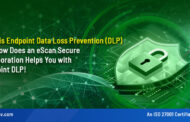The wave of digitization has forced the Indian Government to take up newer initiatives to save crucial public records. The government of India has recently unveiled a whitepaper on data protection and has established an expert committee under former Supreme Court Justice Mr. B.N. Srikrishna’s chairmanship. The government is looking for public opinion so that they can mould the data protection law towards perfection.
However, the official document launched by the government outlines the below:
- Related experiences from other countries and worries about their incorporation.
- Few provisional views are based on the evaluation and objectives of the issues.
The government of India released seven principles for the data protection framework in India:
- Technology skepticism – The principle must be technology dubious and flexible to take into account of changing technologies and standards of the agreement.
- Complete application – The law must be applicable to both private and government bodies. Different formalities may be chalked out in the principle for few state aims.
- Informed consent – Human consent if genuine, should be informed and assessed as meaningful. The law also affirms that the consent must meet the mentioned criteria.
- Minimizing Data – The processed data should be minimum and required for the purposes only. It must be compatible and beneficial for the subject.
- Controller culpability – The data controller should be responsible for any processed data, whether done by himself/ herself or entities with whom it has been shared.
- Structured enforcement – Enforcement of data protection law must be done by the statutory authority which has enough capacity to de-centralize the existing mechanisms properly.
- Restrictive penalties – Sufficient penalties for wrong processing must be a place to ensure smooth practice.
The whole idea of introducing this law is to study various issues relating to data protection in the country and ensure growth of India’s digital economy while keeping personal data of citizens secured and protected.
The committee has also released a set of questions for the public. On the basis of the responses received, the committee will conduct public consultations with citizens and stakeholders to hear everything on this subject.







